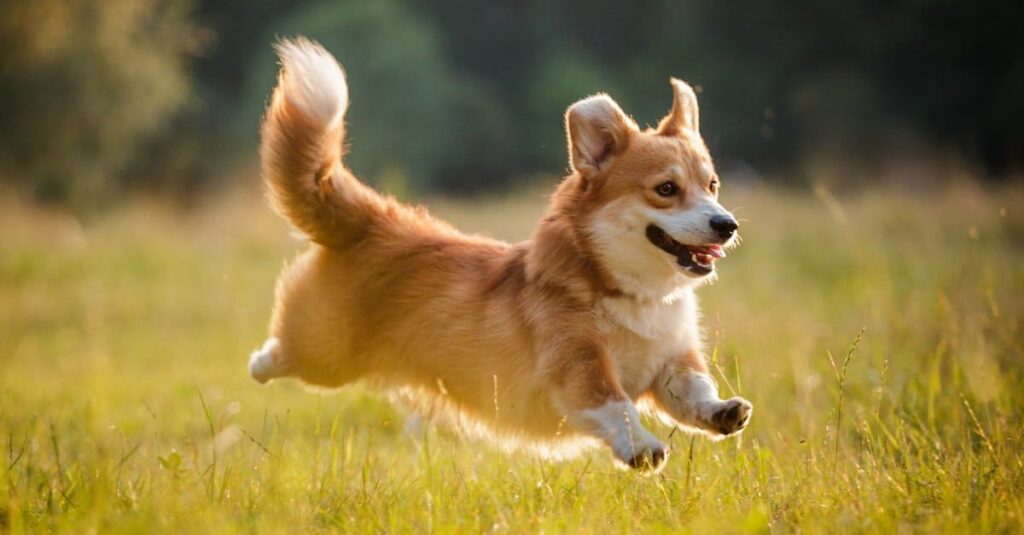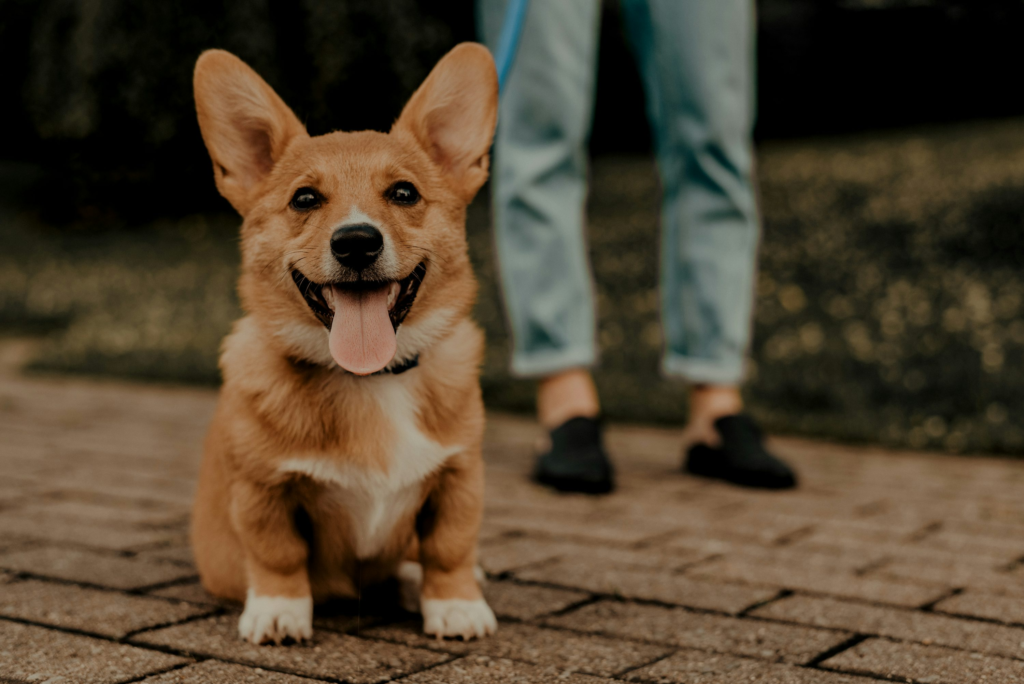Adult Corgi

Adult Corgi:- The Pembroke Welsh Adult Corgi is a delightful, agreeable, and affectionate small dog breed that has captured the hearts of many dog lovers worldwide. Not only does the breed rank among the American Kennel Club’s top fifteen most popular dog breeds but its charming nature and loyal temperament have also made it a favorite in the homes of many, including the English royal family.
Queen Elizabeth II famously adored the Adult Corgi, ensuring the breed’s status as a royal dog, with the family owning at least one Corgi since the 1930s. But beyond their popularity and endearing appearance, what can you expect when it comes to your Corgi’s growth, personality, grooming needs, and overall care?

How Big Will Your Corgi Get?
The Pembroke Welsh Corgi is a relatively small breed. Fully grown, they typically weigh between 25 to 30 pounds, with a height ranging from 10 to 12 inches at the shoulder. Their long bodies and short legs give them a unique, adorable stature. However, their growth is more than just physical. These little dogs are packed with personality and intelligence, making them excellent companions.
Corgis usually stop growing around one year of age, but their growth rate may vary slightly between individuals. While they may reach their full height by six to nine months, they might continue to fill out until they are about a year and a half. Keeping an eye on their weight and ensuring they don’t become overweight is crucial, as their short legs and long backs are prone to strain if they carry extra pounds.
Grooming Your Corgi
One of the key features of a Pembroke Welsh Adult Corgi is its thick, weatherproof double coat. The coat consists of a soft, dense undercoat and a coarse outer layer. This makes them excellent herding dogs, initially bred to herd sheep and cattle in various weather conditions. However, it also means they shed—a lot.
Corgis shed throughout the year, with particularly heavy shedding during the late spring and early summer months. Regular grooming is essential to keep your Corgi’s coat healthy and minimize shedding around the house. A daily brush using a slicker brush or comb helps remove dead hair, especially during shedding season. Bathing your Corgi can also help loosen the undercoat, but make sure they are completely dry before brushing to avoid damaging the fur.
In addition to their coat, your Corgi’s nails should be trimmed regularly, and their ears should be checked for any signs of infection or dirt. Keeping your Adult Corgi clean and well-groomed will contribute to their overall health and well-being.

Exercise and Personality
Despite their small stature, Corgis are highly energetic and athletic dogs. These dogs were bred to be herding animals, meaning they have a natural inclination to stay active and alert. Exercise is essential for their mental and physical health, as it helps them burn off excess energy and maintain a healthy weight. Without regular activity, Corgis can become overweight, which puts extra strain on their long backs and short legs.
Corgis love to work alongside humans, making them eager participants in training sessions. Their intelligence and sense of humor make them quick learners who enjoy mastering tricks and tasks. Whether you’re participating in agility or herding competitions or simply teaching them new commands at home, Corgis thrive when they have mental stimulation. However, their strong-willed nature means they can also be a little stubborn, so training with a firm but gentle approach is necessary.
Corgis are known for being excellent watchdogs. They are protective of their families and may bark at the slightest sound or movement. This alertness can make them prone to excessive barking if not properly managed. Additionally, Corgis’ herding instincts may lead them to nip at the heels of small children or other pets, so it’s important to supervise their interactions and provide proper training from an early age.
Living with a Corgi
The Pembroke Welsh Corgi is a hardy dog, but it’s important to be mindful of their health and care needs. Due to their small size and low-maintenance grooming routine, Corgis are relatively easy to care for. However, special attention should be given to their weight management. Corgis can easily become overweight, which can exacerbate issues with their long backs. Feeding them a balanced diet and providing plenty of exercise will keep them in good shape.

Corgis are happiest when they are part of the family. They thrive on social interaction and don’t do well when left alone for long periods. If left unattended, they can become bored and may resort to unwanted behaviors such as excessive barking, digging, or chewing. Corgis need to feel like they are part of the action and may even climb onto furniture to get a better view of what’s happening around them.
When it comes to living conditions, Corgis are adaptable. They can live comfortably in both apartments and larger homes, as long as they get enough exercise. However, their double coat makes them more suited to temperate climates, and they may struggle in extreme heat or cold.
How Long Do Corgis Live?
Corgis are generally long-lived dogs, with an average lifespan of 12 to 15 years. The Pembroke Welsh Corgi, the breed Queen Elizabeth II owned, typically lives between 12 to 13 years. However, variations within the breed can affect their lifespan. For example, the Cardigan Welsh Corgi, which has rounded ears and a longer tail compared to the Pembroke, tends to live slightly longer, with a lifespan of 12 to 15 years.
Providing your Corgi with regular veterinary care, a healthy diet, and plenty of exercise can help ensure they live a long and healthy life. It’s also important to be aware of common health issues in the breed, such as hip dysplasia and degenerative myelopathy, a neurological condition that affects the spinal cord. Early detection and proactive care can help manage these conditions and improve your dog’s quality of life.
Final Thoughts
Pembroke Welsh Corgis are a beloved breed for many reasons. Their intelligence, playful nature and loyalty make them wonderful companions, while their compact size and adaptable personalities make them suitable for a variety of living situations. With proper care, grooming, and training, your Corgi will be a happy, healthy, and affectionate member of your family for many years to come. Whether they are herding livestock, learning new tricks, or simply cuddling on the couch, these charming dogs will undoubtedly bring joy and laughter to your life.
Also Read:-




